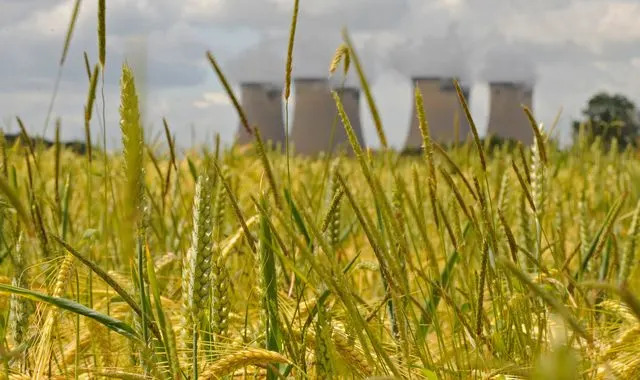Stop subsidising energy companies that burn trees for electricity, climate advisers tell government
Wed, 8 March 2023

The government should stop the flow of multimillion pound subsidies to energy companies that burn trees, its climate watchdog has urged.
The controversial energy source involves burning woody biomass to generate electricity.
It is classed as renewable in the UK because new trees are planted to absorb the carbon dioxide released as trees burn.
That made companies like Drax, which used to burn coal but is now the UK's largest bioenergy provider, eligible for £617 million in government subsidies last year.
In the same year, it posted bumper profits of £731 million as energy prices soared.
In its strongest edict on the issue yet, the Climate Change Committee (CCC) today warned for the first time that subsidies for biomass must end when the current round expires in 2027.
Bioenergy is too expensive and "even sustainable biomass supplies have significant lifecycle greenhouse gas emissions", the CCC said, in a much broader report about Britain's energy future.
It welcomed the fact the money had previously helped convert coal power stations to burn biomass instead, and had supported the industry years ago when low-carbon power was still expensive.
But now it is "not good value for money for bill-payers, and it's not the right thing for the climate either," Dr David Joffe, the CCC's head of net zero, told reporters.
The CCC also warned the current system encouraged biomass companies to "run for as many hours as possible rather than operating flexibly in a back-up role" because they are paid the wholesale price, which is linked to gas prices, as well as the subsidies.
Some scientists back bioenergy as a far cleaner means of power than coal or gas, while many argue it is impossible to guarantee the emissions are reabsorbed, or negate the other pollution.
A Drax spokesperson said its "conversion from coal to biomass is one of the primary reasons that the UK's power sector has decarbonised as fast as it has over the last decade, while maintaining energy security".
In 2021 Sky News revealed that Drax's Selby plant was the largest CO2 emitter in the UK, before any carbon dioxide removal by new tree growth was factored in.
Drax strongly denies allegations by a BBC Panorama programme that it had been felling trees from primary Canadian forests, rather than burning only "waste wood" as promised.
'Important role' for technology that removes carbon
The CCC also said the UK should abandon biomass in its current form from around 2030.
But it threw its support behind plans to make biomass carbon negative by capturing and burying the emissions under the North Sea in depleted oil or gas fields.
The process is known as bioenergy with carbon capture and storage (BECCS).
BECCS will play an "important role" in meeting climate targets because it can remove CO2 from the atmosphere while also generating electricity, the CCC said.
The government's reluctance to try to reduce demand, for example via high-polluting sectors like aviation or agriculture, makes carbon removals such as BECCS even more urgent, Dr Joffe told Sky News.
But Conservative MP Pauline Latham said not only should the government end the "massive renewable subsidies they pay to biomass companies" by 2027, but "further subsidies should not be granted beyond this date in the form of subsidies to BECCS".
"These companies should not be using billpayer money to burn wood from other countries' forests," she told Sky News.
Will bioenergy with carbon capture work?
Energy thinktank Ember estimates Drax's proposed BECCS plant would require £31.7 billion in public subsidies.
Drax says it has successfully piloted the carbon capture process, but cannot test the storage because the underground infrastructure has not yet been built.
Its spokesperson said the CCC identifies "the crucial role that carbon removals, and particularly bioenergy with carbon capture and storage (BECCS), will play in delivering a reliable and resilient decarbonised power system".
The spokesperson added: "We believe the UK will need multiple solutions in place to achieve net zero, and as the country's biggest renewable power generator by output, we look forward to playing an important role in its transition."
The government's delayed Biomass Strategy, which was due by the end of 2022, is expected between April and June this year.
A government spokesperson said the UK is "decarbonising faster than any other G7 country, while low-carbon sources like renewables and nuclear provide half of our total UK energy generation".
They added: "But we are also investing in the new technologies of the future, rapidly progressing developments in Carbon Capture and Storage, alongside being the first government in decades to invest in nuclear energy which will be critical to energy security and making energy more affordable."
The CCC's wide-ranging report looked at how the UK could decarbonise the grid as hoped by 2035. It said the goal was just about still in reach, but officials were moving too slowly at the moment.
No comments:
Post a Comment